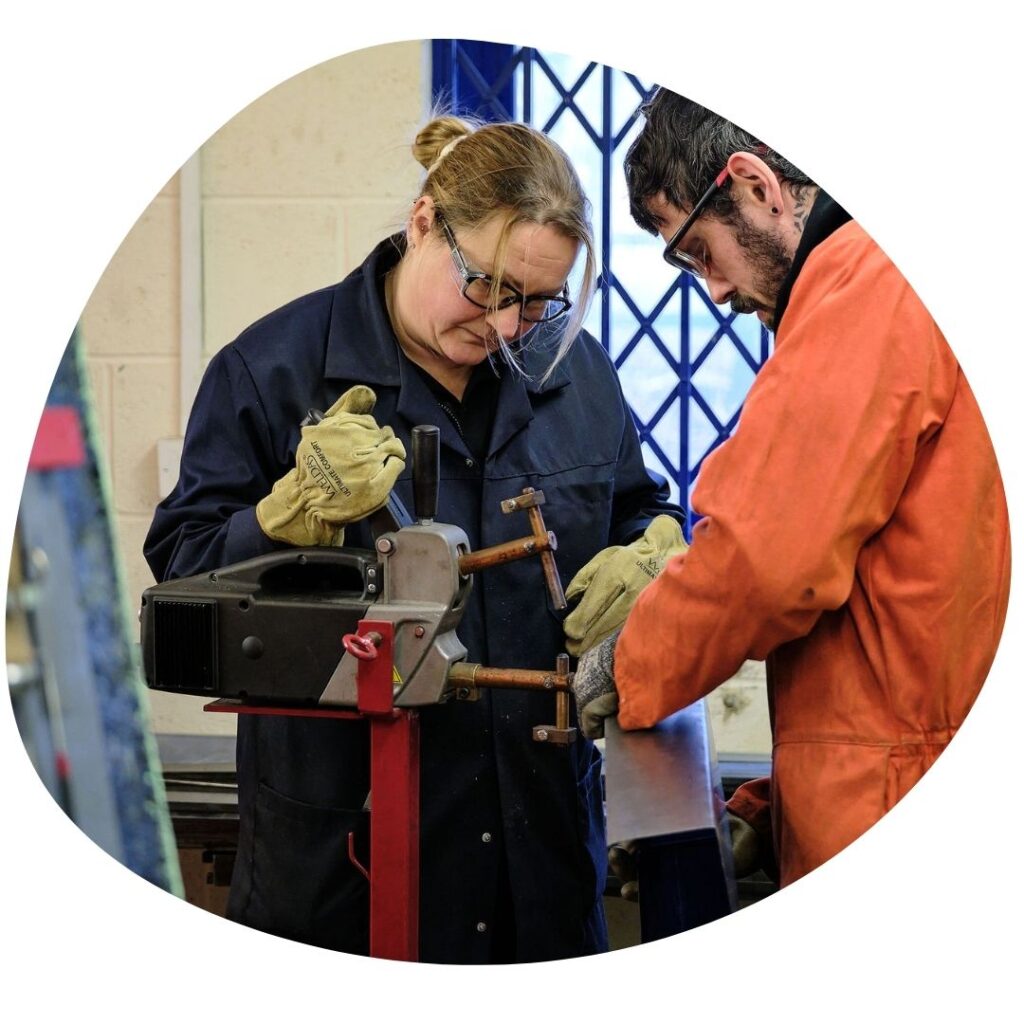Whether you are already in employment and looking to improve your skills, or have just left school or college and want to develop a career path, an engineering apprenticeship can set you on your way to a rewarding vocation.

Dempsey had always had an interest in Engineering and the way things work and took the leap to change his career direction with an Apprenticeship. He believes that having a trade with real skills is a chance to drive his career forward in the future.
“I wanted to change my life and realised that an Apprenticeship could be the route I was looking for. Derwent Training have supported me all the way. The atmosphere here is calm and friendly and I’m so pleased I made the decision to come here. Who knows where I will be able to go after this.”

Our 2-year Welder Apprenticeship Programme allows you to build skills, knowledge and practical experience to succeed in your chosen career. You will combine both on-the-job learning at your employer with tuition from our trainers at our specialist engineering training facility in Malton one day per week. Your trainers will carry out formal 10-week checks on your progress and set new targets.
There are two main pathways to applying for an Apprenticeship:
Apprenticeships are competitive and they are not like a full-time college course where you are guaranteed a place if you meet the entry requirements. You will need to be pro-active in applying for Apprenticeships, as well as preparing a CV and attending interviews’ with employers, just as you would for any job.
Entry Requirements
Useful Websites

The cost of the apprenticeship will be funded by the Government and your employer – there are no training costs to be paid by the apprentice.
As you are earning a wage, your employer may expect you to pay for your travel to Derwent Training for your attendance day. This may be via car, bus or train but every employer is different. It is your responsibility to get to and from the training centre for your off-the-job training.
What you earn as an apprentice will depend on your age, the apprenticeship standard and the location of the employer.
If you are 16-18, or 19 or over and in the first year of your apprenticeship then you may be entitled to the National Apprenticeship Minimum Wage. Many employers do pay more than this but as you are their employee it is their decision. You must be paid for:
You will usually get at least 20 days of paid annual leave plus bank holidays. You can find information on the National Minimum Wage here.